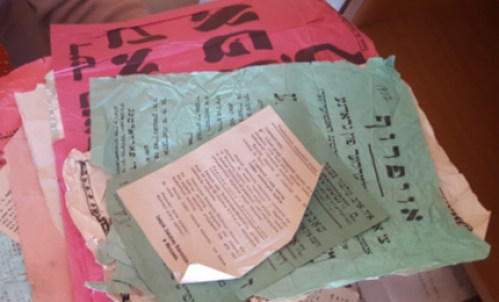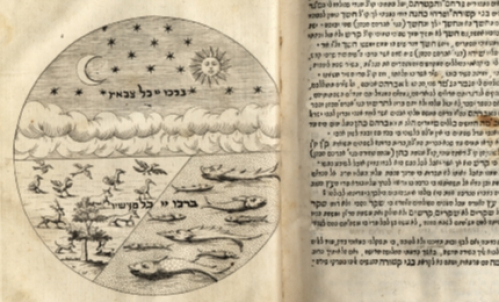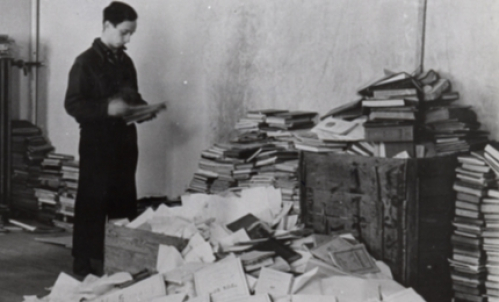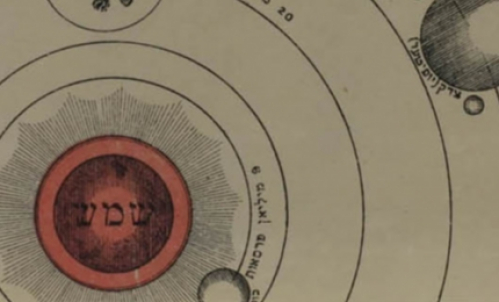A Yiddish Revolutionary Song from 1928
by ROBERTA NEWMAN
The materials gathered by amateur collectors (zamlers) in Polish towns and cities for YIVO’s Ethnographic division in the 1920s and 30s included songs, folk tales, folk expressions, superstitions, and children’s games. But the stories they told were often more than what could be gleaned from the data itself. Who sang the folk song and where? How did children’s games change through the generations?
This fragment of a Yiddish revolutionary song sent by Berl Verblunsky to YIVO in July 1928 is just that sort of multifaceted artifact. Verblunsky, a prolific zamler based in Grodno, was deemed such an asset to YIVO’s work that it helped him buy a bicycle so that he could more easily travel from town to town to interview people and gather materials. (1)
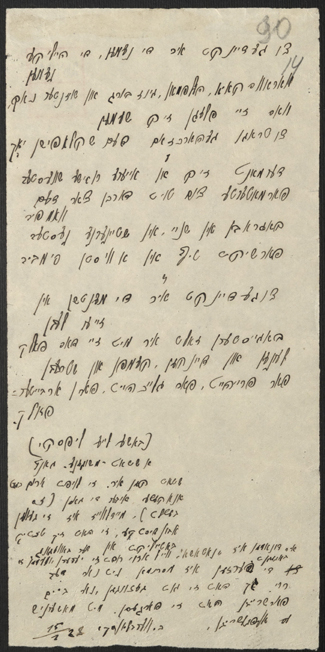
Do you remember the name, the holy names,
Vorovskaya, Helfman, Ginzburg, and thousands more, Who were ashamed
To carry obediently the yoke of a slave?Do you recall your Russian sisters,
Exhausted to death by the Tsar, the vampire,
Buried in snow, in stony burrows,
Exiled deep in the wilderness of Siberia?And do you remember the people and their life?
Take inspiration from them, the folk,
Who read and think, fight and die
For freedom, equality, for the working folk.
Verblunsky did not just transcribe the song. He also provided details about his informant, one Basha Leye Lipski, a shtot-meshugene, a town “crazy.” In her youth she had been an active member of the Jewish Labor Bund with the nom de guerre of Natasha. His note sheds light not only on the folk culture of Jewish socialists but also on how the society of the shtetl dealt with the mentally ill:
The whole town knew her. She ran around almost naked in the street…
Despite her disability, she was a good informant for Verblunsky: “She was able to sing the song quickly and well” even though she was then unable to sing the entire song for him a second time so that he could transcribe it.
This artifact is one of the thousands of pages of YIVO’s prewar archives currently held at the Lithuanian Central State Archives and which have been digitized for the Edward Blank YIVO Vilna Collections project.
Roberta Newman is YIVO’s Director of Digital Initiatives.
(1) Kuznitz, Cecile Esther. YIVO and the Making of Modern Jewish Culture. New York: Cambridge University Press, 2014, 77.
A reader has written in to note that the song collected by Verblunsky is a version of Arbeter froyen (Worker Women), a Bundist song based on a poem by David Edelstadt. A transcription of the lyrics can be found here.
